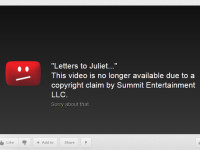Trade agreements have emerged in recent years as one of the federal government’s most frequently touted accomplishments. Having concluded (or nearly concluded) free trade deals with the likes of the European Union and South Korea, senior government ministers such as International Trade Minister Ed Fast and Industry Minister James Moore have held dozens of events and press conferences across the country promoting the trade agenda.
The next major agreement on the government’s docket is the Trans Pacific Partnership, a massive proposed trade deal that includes the United States, Australia, Mexico, Malaysia, Singapore, New Zealand, Vietnam, Japan, Peru, and Chile. While other trade talks occupy a prominent place in the government’s promotional plans, the TPP remains largely hidden from view. Indeed, most Canadians would be surprised to learn that Canada is hosting the latest round of TPP negotiations this week in Ottawa.
My weekly technology law column (Toronto Star version, homepage version) argues the secrecy associated with the TPP – the draft text of the treaty has still not been formally released, the precise location of the Ottawa negotiations has not been disclosed, and even the existence of talks was only confirmed after media leaks – suggests that the Canadian government has something to hide when it comes to the TPP.












